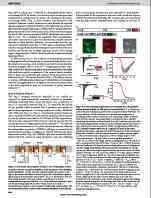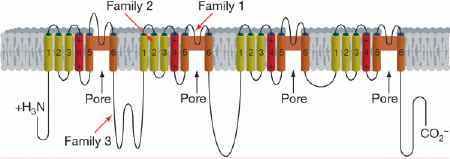Guest Post by Imran Nasrullah

 Recently, the New York Times reported on the case of a 10-year old boy from Lahore who could perform remarkable feats – like walking on burning coals and passing knife blades through his arm – without exhibiting any sign of pain. According to the NYT:
Recently, the New York Times reported on the case of a 10-year old boy from Lahore who could perform remarkable feats – like walking on burning coals and passing knife blades through his arm – without exhibiting any sign of pain. According to the NYT:
Geneticists following up the case of a 10-year old Pakistani boy who could walk on coals without discomfort have discovered a gene that is central to the perception of pain. The boy lived in Lahore, Pakistan, and was well known to the city’s medical authorities because he would come to the clinic asking to be patched up after his street theater. In these exhibitions, he would pass knives through his arms and walk on burning coals without feeling pain.
A research team led by C. Geoffrey Woods, a physician at the Cambridge Institute for Medical Research in Cambridge, England, reports in the journal Nature that team members have identified a genetic defect in some of the boy’s relatives who are also unable to feel pain. The defect inactivates a gene that is critical to the body’s perception of pain. The gene is obviously an attractive new target for drug developers seeking to eliminate pain.
Researchers following up met other members of this family (the Quereshis) in Pakistan comprising individuals with this same unique ability: “None knew what pain felt like, although the older individuals realized what actions should elicit pain,” say researchers.
It turns out members of this clan have a key mutation in the gene SCN9A (located on chromosome 2-specifically, chromosome 2q24.3) that totally blocks the perception of pain. SCN9A encodes for a sodium channel receptor that regulates. It has been known that a different mutation in the same gene produces the opposite feeling- an intense searing sensation responsive to mild warmth- known as Burning Man’s Syndrome. To be immune from pain, requires inheritance of a single copy of the mutation from both parents (homozygous recessive), a phenomenon more likely to occur in clan based societies where intermarriage among the clan is frequent.From a pharmacoeconomic perspective, this discovery is huge as pain management for back pain alone consumes 20% of US health costs and 1.5% of US GDP! Drug developers could start generating new medicines- agonist[s] specific for this subunit might act as a ‘total analgesic’ with no side effects – thereby, better managing pain.
Let’s hope that drug companies capitalizing on this discovery will make such medicines affordable to those in poor countries who live with pain without recourse.
Imran Nasrullah heads business development and IP liscensing at a pharmaceutical company in the United States.




















































I hope we can have more posts on HOW to create a research environment in Pakistan. Education has to be key, but it is not just about money, its also about thought out policies. Unfortunately most univeristies in Pakistan do NOT see themselves as research places, they see themselves more as teaching places. There is a difference and society needs to recognize it and invest seperately in research environment. There are too many institutes of this and that, but too few who REALLY do any research.
[quote comment=”18384″]
I should say this argument, at this point, is probably academic as we don’t have the educational infrastructure to train the generation of scientists needed to work, create and invent at such companies.[/quote]
We don’t, but there is no reason we cannot. Look at AKU, in the midst of mediocre institutions, it is an excellent example of what Pakistanis are capable of; as I am told, their medical students go to places like Mass. General, Mayo Clinic, and other places to do their residencies.
I am 100% sure that if the government forks up the money to build 5 AKU clones, we would still have many more qualified candidates than positions for students.
I agree that drug development is expensive, but there is no reason we cannot tackle this in chunks. Big Pharma is outsourcing its R&D to India. Someday, Pakistan may have R&D houses. Of course the largest expenses incurred are in the clinical trials phase of development, especially post phase II. Research up to preclinical is less expensive relative to development, acknowledging the fact the risk is much higher (though failure at the trials stage is where the large cost occurs- cost of failure).
I should say this argument, at this point, is probably academic as we don’t have the educational infrastructure to train the generation of scientists needed to work, create and invent at such companies.
i totally agree with Eidee Man!we need first to build a infrastructure and a structure that can hold the professionals in Pkaistan after that we can have investment comin in by big companies!alot of it is being done in india as cost of research is easy an they have the means tru the technology an brains!we have brains but no technology coz of our budget going into wrong hands by the rong people!we need to get the structure first as research is a expensive tool as im into clinical trials here in US an i know how easil it can be done in pak almost with 1/3 of the money that govt is spendin here and loads of comapies now goin to Asia fer this purpose India an China 2 examples i can qoute from the Pak region!we can do alot like tht an develop slowly a research culture an then start the discovery in drugs an even at molecular an genetic level!
over all a nice thoughtful post!
[quote comment=”17935″]
One wonders, if someday Pakistan can harness its brain power and private capital resources (that seems to be where the wealth is tied up) to spin up its own biotechnology company to find new medicines based on gene variability endemic to Pakistan (I recall that a baldness gene was found in Pakistan as well)to positively contribute to the healthcare of society. While the brain power exists, it seems the larger percentage is among the diaspora because of the brain drain. Interestingly, I read/heard that many Indians in the pharmaceutical sector living abroad are returning to India to start up their own biopharmaceutical companies. India’s change in its patent laws to accomodate protection of pharma products (drugs) and the intellectual capital of its diaspora are making a return home attractive. Can Pakistan pull the same thing off?[/quote]
As someone working in Systems Biology (esp. in pharmacogenomics), I can tell you that there is a general consensus that we’re at the threshold of phenomenal change. The research that is currently going on will turn medicine literally on its head.
However, I do not think it is practical for Pakistan to invest in pharmaceutical research. That’s because it is EXTREMELY expensive….drug companies spend billions and billions on candidate drugs, the vast majority of which are killed very early in the FDA process.
That being said, I think there is tremendous opportunity for Pakistan to invest in related technologies and in manufacturing (not developing) biological drugs.